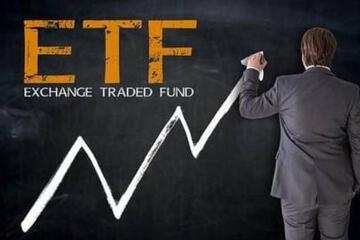Saving money for you and your families future is vitally important but its something that too many Americans neglect to do. Putting a few dollars a week into a risk-free savings account or money market account can add up to a sizeable war chest that can be used to fund your retirement or pay for unexpected expenses and emergencies such as medical bills, car and home repairs. Saving to pay for your kids’ college education should also be a priority. Traditional savings accounts have been less popular during the recent years of low-interest rates but as the Fed continues to increase exchange rates its time to get saving again. Below we highlight some of the top high-interest savings accounts in the US.
Sponsored Listings
What Is A Savings Account?
A savings account is a good starting point as they are easy to open and manage. As a way of saving money and growing your savings, a traditional savings account is a risk-free strategy compared to investing in the stock market or god forbid an alternative investment like Bitcoin! Most savings accounts are provided by banks or similar financial institutions and require you to open the account with a minimum balance – anywhere between $1 and $10,000. Free savings accounts are easily available if you maintain a healthy balance. If you cannot maintain the required balance a small monthly fee of between $5 and $10 is usually charged for maintaining the account. The banks take your savings and lend them to somebody else at a higher interest rate than they are paying you. Don’t worry though, your money is not at risk and can be accessed and removed at any time. This is just the way the bank makes money and can justify paying you interest on your savings.
Savings accounts are insured by the FDIC (Federal Deposit Insurance Corporation which means your money is completely safe up to $250,000. It is, therefore, a good idea to split your savings between multiple banks if you are lucky enough to have more than $250,000 in savings. Compare this to investments such as the stock market. Stock market investments can certainly grow quicker than a traditional savings account but they can also drop in value (as most investors saw during the last few months of 2018. Savings accounts are old fashioned tools to grow your savings slowly and safely.
Your savings will grow in a Savings Account as a result of interest and compound interest paid on the balance you hold in your account. Over time this can grow your savings significantly and protect you against inflation in the real world. The interest earned in a traditional savings account is usually lower than you would receive in a Money Market Account (see below) but the minimum balance requirements are also lower.
What is a Money Market Account?
A Money Market Account is slightly different to a traditional Savings Account and you will likely earn a higher rate of interest assuming you can meet the minimum balance requirements. Money Market Accounts are also very liquid, meaning you can access your savings at any time and are protected under the FDIC scheme up to $250,000. All of this adds up to an easy, safe and stress-free way to save and grow your nest egg. Most MMA’s have restrictions on the number of withdrawals you can make and most provide a cheque writing service. Make sure to study the restrictions on different Money Market Accounts in order to find the right one for you.
How To Grow Your Savings
Earning interest is only one part of growing your savings. Your nest egg will grow a lot faster and further if you put a savings plan in place and regularly add to your savings account. Step 1 is to choose a goal. What are you saving for? Some of the most common reasons for saving are;
- Saving for retirement
- Saving for education
- Saving for a new car or home
- Saving for emergencies
- Saving for a vacation
- Building a nest egg
Now you have a goal in mind its time to commit to a savings plan. How can you build your savings as quickly as possible? Can you cut expenses elsewhere? Do you have any debt that you are paying high interest on? Can you reduce this by refinancing or consolidating your debt? When you have identified where you can reduce your outgoings you can commit to paying a set amount into your savings account each week/month? This is the single best way to grow your savings without really thinking about it. It removes the tempation to spend that money on a shiny new gadget or a pair of shoes. Saving become a habit and something you can set and forget.
Disclaimer: Our service is not intended to be, nor should it be construed as financial advice. We help our readers make informed decisions via impartial information and guides. Where appropriate, we may introduce partner companies who can provide services relating to financial products.













